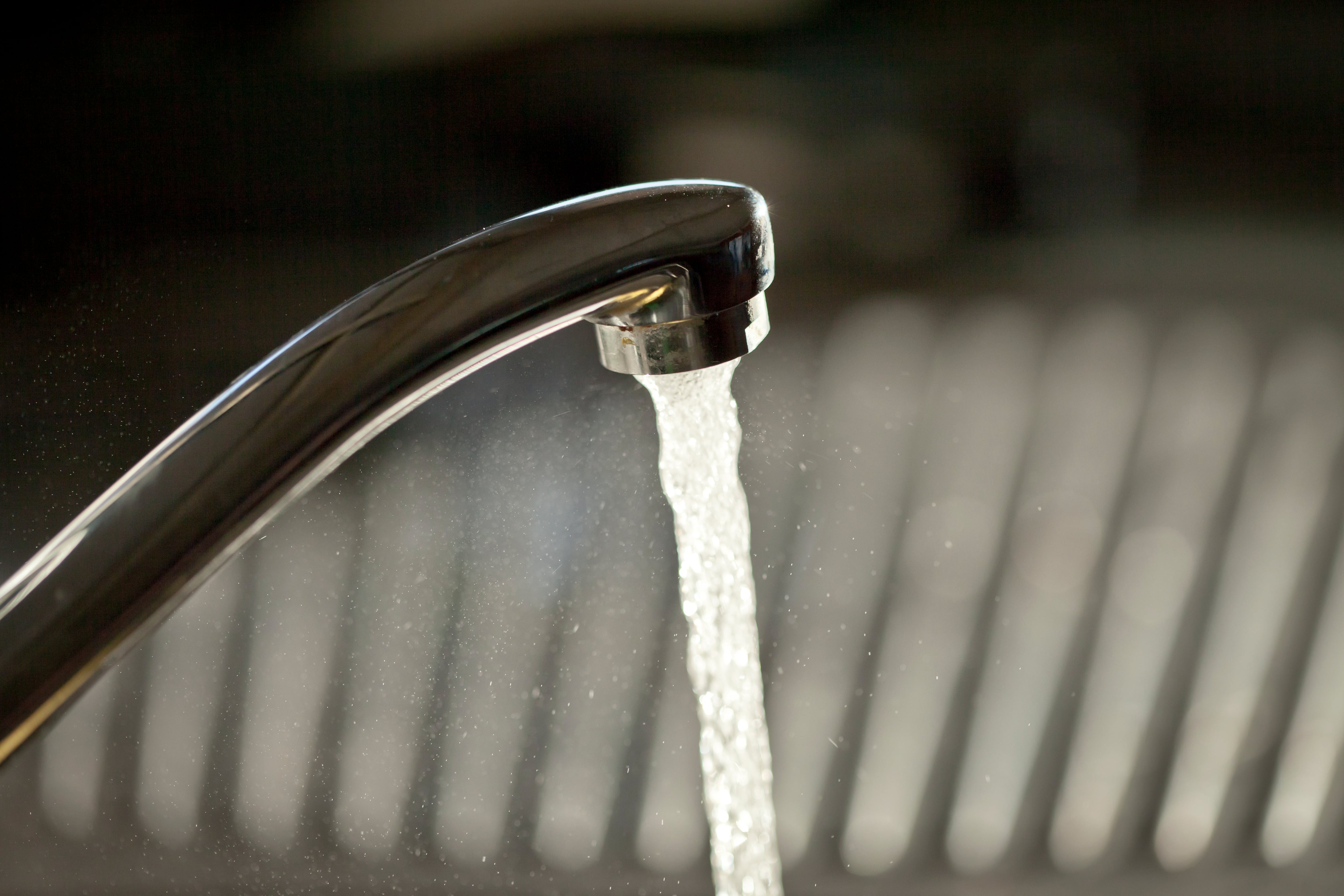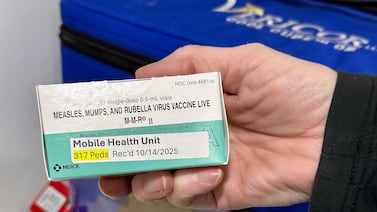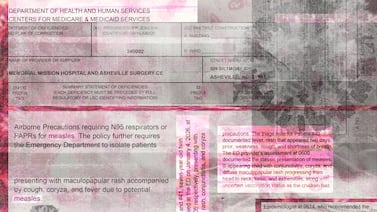Public health, explained: Sign up to receive Healthbeat’s free national newsletter here.
When Cynthia Ruiz turns on her kitchen faucet, she hears a slight squeak before cloudy fluid bursts out of the spout. The water in her Central Valley town of East Orosi is clean enough most of the time to wash dishes, flush toilets, and take showers, but it’s not safe to swallow. Drinking water is trucked in twice a month.
“There are times where the water is so bad you can’t even wash dishes,” said Ruiz, who is advised not to drink the tap water, which is laden with nitrates — runoff from orange and nectarine fields surrounding the town of roughly 400. “We need help to fix our water problem.”
Tucked in a $10 billion climate bond on Tuesday’s ballot is an earmark to improve drinking water quality for communities such as East Orosi. Proposition 4 would allocate $610 million for clean, safe, and reliable drinking water and require at least 40% be spent on projects that benefit vulnerable populations or disadvantaged communities. But it’s a fraction of what the state says is needed.
While most Californians have access to safe water, roughly 750,000 people as of late October are served by 383 failing water systems, many clustered in remote and sparsely populated areas. A June assessment by the California State Water Resources Control Board pegged the cost of repairing failing and at-risk public water systems at about $11.5 billion.
“We have communities in California that are served drinking water that has been out of compliance with regulatory standards for potent toxins like arsenic for years,” said Lara Cushing, an associate professor in UCLA’s Department of Environmental Health Sciences.
And climate change is eroding people’s access to clean water, she said. “There is kind of a perfect storm, if you will, of compounding hazards.”
Supporters say Proposition 4, to enact the Safe Drinking Water, Wildfire Prevention, Drought Preparedness, and Clean Air Bond Act of 2024, would jump-start upgrades by authorizing grants and loans for local governments to repair water systems contaminated with lead, arsenic, nitrates, or other chemicals tied to cancer, liver and kidney problems, and other serious health issues.
Water priorities vary by region, and the bond would give communities flexibility to address their needs, said MJ Kushner, a policy advocate at the Community Water Center, a statewide nonprofit. “It isn’t a one-size-fits-all solution,” Kushner said.
A taxpayer group opposing the bond says the state will go further into debt on piecemeal projects. It says the state is increasingly addressing its climate-related programs with bonds, which it calls the most expensive way for government to pay for things, rather than within the state budget.
Lawmakers in July added Proposition 4 to the ballot after Democratic Gov. Gavin Newsom, facing a $47 billion deficit, cut $6.6 billion in climate spending from the state budget, according to Department of Finance spokesperson H.D. Palmer. The reductions followed $3.1 billion in climate cuts Newsom and lawmakers enacted in 2023.
Susan Shelley, a spokesperson for the Howard Jarvis Taxpayers Association, said the state has already borrowed billions and that now isn’t the time to add more debt given the deficit.
“If the legislature chose to cut these from the budget, they should not go on the credit card,” Shelley said. “It’s irresponsible.”
According to the nonpartisan Legislative Analyst’s Office, the state has routinely allocated state funds for climate-related programs, with about 15% coming from bonds. The office estimates it would cost taxpayers $400 million a year for the next 40 years to repay the bond — a total of $16 billion.
Since 2000, California voters have approved eight water bonds totaling $27 billion, for projects involving flood management, habitat restoration, drought preparation, and drinking water improvement, according to the Public Policy Institute of California.
Scientists say climate change has led to more severe weather, including devastating floods and droughts; the spread of infectious diseases such as West Nile virus; and earlier deaths from respiratory illnesses. Public health experts add that as climate change worsens, its impact on people’s health will grow more severe and could cost the state more in the long run.
“If we quantify the damages associated with the do-nothing policy, you’ll see that typically, at the end of the day, the bill plus the interest costs are going to be less than the cost if we do nothing,” said Kurt Schwabe, an environmental economics and policy professor at the University of California-Riverside.
If approved, Ruiz hopes Proposition 4 can help East Orosi, a predominantly Latino and low-income community. Though she receives 25 gallons of drinking water twice a month, she sometimes runs out. The last time the 47-year-old drank tap water at home was when she was in high school.
“I don’t think any community anywhere in California should have to wait this long to get clean water,” Ruiz said.
Vanessa G. Sanchez is a reporter for KFF Health News, Healthbeat’s natiional reporting partner.






